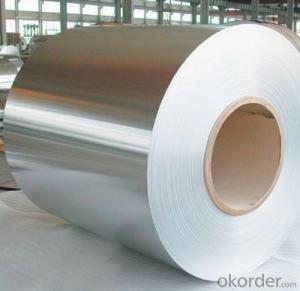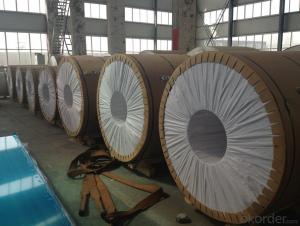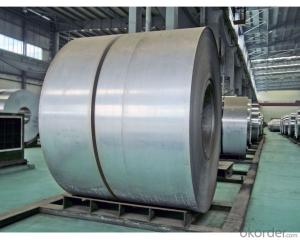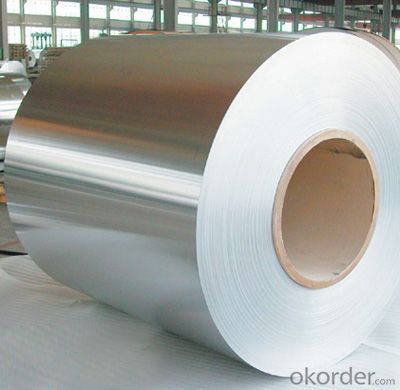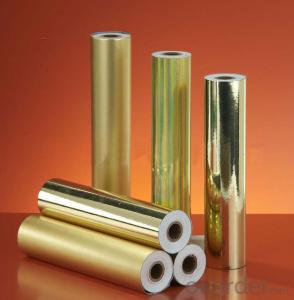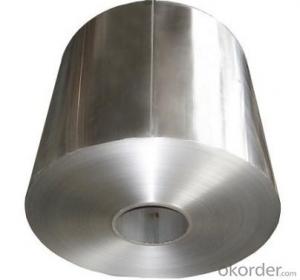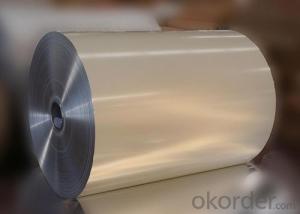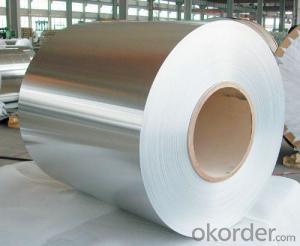Aluminium Cast Coil for making aluminium foil
- Loading Port:
- Shanghai
- Payment Terms:
- TT OR LC
- Min Order Qty:
- 5 m.t.
- Supply Capability:
- 1000 m.t./month
OKorder Service Pledge
OKorder Financial Service
You Might Also Like
Specification
1. Structure of Aluminium Cast Coil for making aluminium foil Description
Aluminium Cast Coil for making aluminium foil is one semi-finished aluminium material. This coil can be rolled down to aluminium coil,sheet,circle ect. The alloy AA1050 is widly used in building, industry ect. Its weight is much lower than steel. So many customers choosed aluminium material instead of steel.
2. Specification of Aluminium Cast Coil for making aluminium foil
Aluminium Cast Coil for making aluminium foil | |
Main Specification | |
Alloy | AA1xxx (AA1050, AA1060, AA1070, AA1100 etc.) |
AA3xxx (AA3003, AA3004, AA3005, AA3105 etc.) | |
AA5xxx, AA6XXX (AA5052,AA5083, AA5754, AA6061, AA6062 etc.) | |
AA8xxx(AA8011, AA8006 etc.) | |
Temper | H14,H16, H18, H22, H24, H26, H32,O/F, T4, T6, T651 |
Thickmess | 0.01mm-100mm |
Width | 30mm-1700mm |
Standard | GB/T 3880-2006/ASTM |
Special specification is available on customer's requirement | |
3. Application of Aluminium Cast Coil for making aluminium foil
(1).Interior: wall cladding, ceilings, bathrooms, kitchens and balconies, shutters, doors...
(2).Exterior: wall cladding, facades, roofing, canopies, tunnels,column covers , renovations...
(3).Advertisement: display platforms, signboards, fascia, shop fronts...
4. Feature of Aluminium Cast Coil for making aluminium foil
Surfact Quality :
Be free from Oil Stain, Dent, Inclusion, Scratches, Stain, Oxide Dicoloration, Breaks, Corrosion, Roll Marks, Dirt Streaks and other defect which will interfere with use,
Mechenical Property:
Chemical Composite and Mechanical Property
5. Certificate of Aluminium Cast Coil for making aluminium foil
SGS and ROHS(if client request, paid by client), MTC(plant provided), Certificate of Origin(FORM A, FORM E, CO), Bureau Veritas and SGS (if client request, paid by client), CIQS certificate
6. Image of Aluminium Cast Coil for making aluminium foil
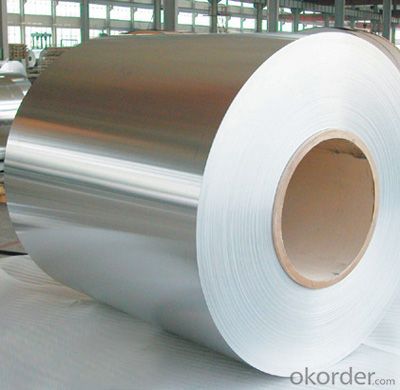
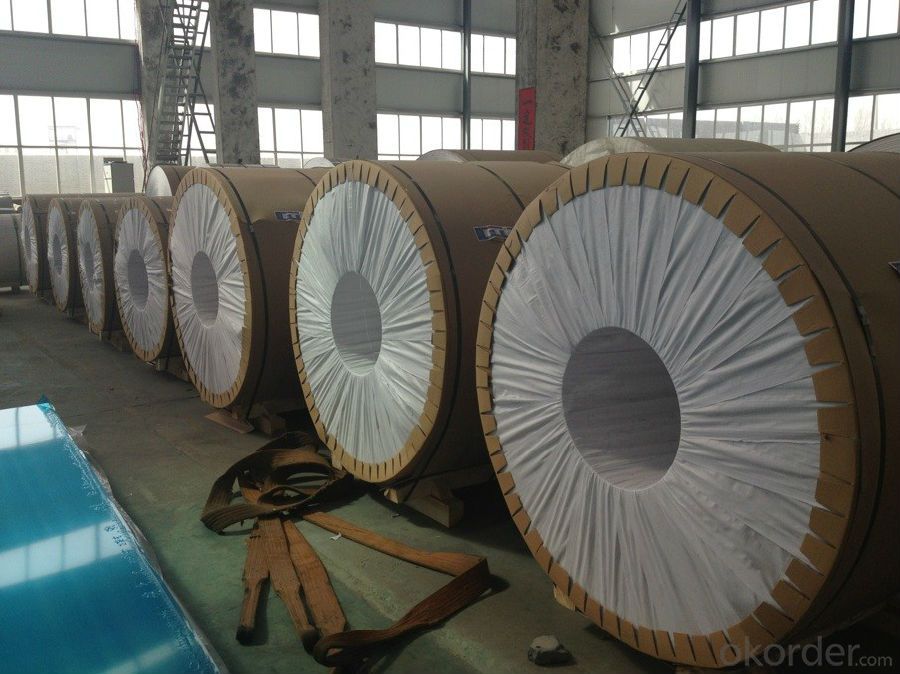
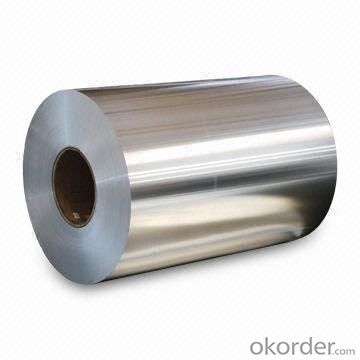
7. Package and shipping of Aluminium Cast Coil for making aluminium foil
First, plastic cloth with drying agent inside; Second, Pearl Wool ; Third, wooden cases with dry agent , fumigation wooden pallets, aluminum surface could cover blue PVC film
8. FAQ
1) What is the delivery time?
Depends on actual order, around 20 to 35 days
2) What is the QC system:
We have QC staff of 20 persons and advanced equipment, each production is with MTC traced from Aluminum ingot lot.
3) What market do you mainly sell to?
Australia, America, Asia, Middle East, Western Europe, Africa etc
- Q: Can aluminum coils be used for architectural applications?
- Aluminum coils are indeed applicable for architectural purposes. With its versatility and lightweight nature, aluminum is an ideal material that boasts exceptional resistance against corrosion, making it suitable for numerous architectural applications. Exterior cladding, roofing, facades, and even interior uses like ceilings and wall panels can all benefit from the utilization of aluminum coils. These coils are easily malleable, cuttable, and moldable, allowing for flexibility in design and innovative architectural solutions. Moreover, aluminum coils can be coated with diverse finishes, such as paint or anodized coatings, to enhance both aesthetics and durability. All in all, due to their adaptability, durability, and aesthetic charm, aluminum coils are highly favored within the architectural industry.
- Q: What are the different sizes available for aluminum coils?
- The sizes available for aluminum coils can vary depending on the manufacturer and specific requirements. However, common sizes range from narrow coils with widths as small as 0.2 inches to wider coils with widths up to 72 inches. The thickness of these coils can also vary, typically ranging from 0.006 to 0.25 inches.
- Q: Can a digital caliper be utilized to accurately measure the diameter of an aluminum coil?
- <p>Yes, you can use a digital caliper to measure the diameter of an aluminum coil accurately. Digital calipers are precise measuring tools, often accurate to 0.001 inches or 0.02mm, which is suitable for measuring the diameter of various objects, including aluminum coils. Ensure the caliper is zeroed before use and that the coil's surface is clean and flat where the measurement is taken to get accurate readings.</p>
- Q: When aluminum metal is heated with an element from group VIA of the periodic table, an ionic compound forms. When the experiment is performed with an unknown croup VIA element, the product is 18.56% Al by mass. What is the formula of the compound and what is its name?
- Al2Se3 aluminum selenide
- Q: What are the various dimensions and specifications of aluminum coils available in the market?
- <p>Aluminum coils come in various sizes and specifications to cater to different industrial needs. Common sizes include thicknesses ranging from 0.005 to 0.5 inches (0.13 to 12.7 mm), widths from 1 to 72 inches (25 to 1829 mm), and lengths from 10 to 6000 feet (3 to 1829 meters). The specific dimensions can vary based on the manufacturer and the application, such as construction, automotive, or packaging. It's important to consult with suppliers for the exact sizes available for a particular project or application.</p>
- Q: What is the impact resistance of aluminum coils?
- The impact resistance of aluminum coils is generally high. Aluminum has a good strength-to-weight ratio and is known for its ability to withstand impact and deformation without breaking or fracturing easily. This makes aluminum coils suitable for various applications where resistance to impacts and mechanical stress is important, such as in construction, automotive, and aerospace industries.
- Q: What is the difference between hot rolled and cold rolled aluminum coils?
- The production process and resulting properties of the final product are what differentiate hot rolled and cold rolled aluminum coils. To produce hot rolled aluminum coils, aluminum ingots are heated above their recrystallization temperature, typically around 450°C (842°F), and then rolled through a series of rollers to reduce thickness and shape them into coils. This process allows for fast production and the ability to create larger coils. However, hot rolling can result in a less precise and less smooth surface finish, with potential for surface defects and oxidation. On the other hand, cold rolled aluminum coils are produced by further processing hot rolled coils. First, the hot rolled coils are pickled, or chemically treated, to remove any mill scale or impurities. Then, they undergo cold rolling, where they are passed through a series of rollers at room temperature. This process yields a more precise and smoother surface finish, with excellent dimensional accuracy and tighter tolerances. Cold rolling also enhances the strength and hardness of the aluminum, making it more suitable for certain applications. In terms of properties, hot rolled aluminum coils generally have lower strength and hardness compared to cold rolled coils. They also have a higher chance of surface defects and oxidation due to the high temperature involved in the production process. On the other hand, cold rolled aluminum coils exhibit higher strength and hardness, as well as better surface finish and dimensional accuracy. These properties make cold rolled aluminum coils more suitable for applications that require higher quality and precision. Ultimately, the choice between hot rolled and cold rolled aluminum coils depends on the specific requirements of the end-use application. Hot rolled coils are often employed in applications where speed and cost-effectiveness are prioritized, while cold rolled coils are preferred for applications that demand higher quality, precision, and strength.
- Q: This question asks about the current market demand for aluminum coil, which is a versatile material used in various industries.
- <p>The market demand for aluminum coil is significant and growing due to its wide range of applications across industries such as construction, automotive, aerospace, packaging, and electronics. Its lightweight, corrosion resistance, and recyclability make it a preferred material for many applications. The demand is influenced by economic growth, technological advancements, and sustainability initiatives. As countries focus on greener construction and manufacturing processes, the demand for aluminum coil is expected to increase further.</p>
- Q: Can aluminum coils be used in extreme temperature conditions?
- Yes, aluminum coils can be used in extreme temperature conditions. Aluminum has a high thermal conductivity and is resistant to corrosion, making it suitable for various temperature extremes. Additionally, aluminum's low melting point allows it to withstand high temperatures without deforming or losing its structural integrity.
- Q: What are the different color options for coated aluminum coils?
- The different color options for coated aluminum coils are vast and varied. They can include classic colors such as white, black, and gray, as well as an array of vibrant and bold shades like red, blue, green, and yellow. Additionally, there are also metallic finishes available that can add a touch of elegance and sophistication to the coils. Ultimately, the color options for coated aluminum coils are limited only by the imagination and preferences of the customer.
Send your message to us
Aluminium Cast Coil for making aluminium foil
- Loading Port:
- Shanghai
- Payment Terms:
- TT OR LC
- Min Order Qty:
- 5 m.t.
- Supply Capability:
- 1000 m.t./month
OKorder Service Pledge
OKorder Financial Service
Similar products
Hot products
Hot Searches
Related keywords
